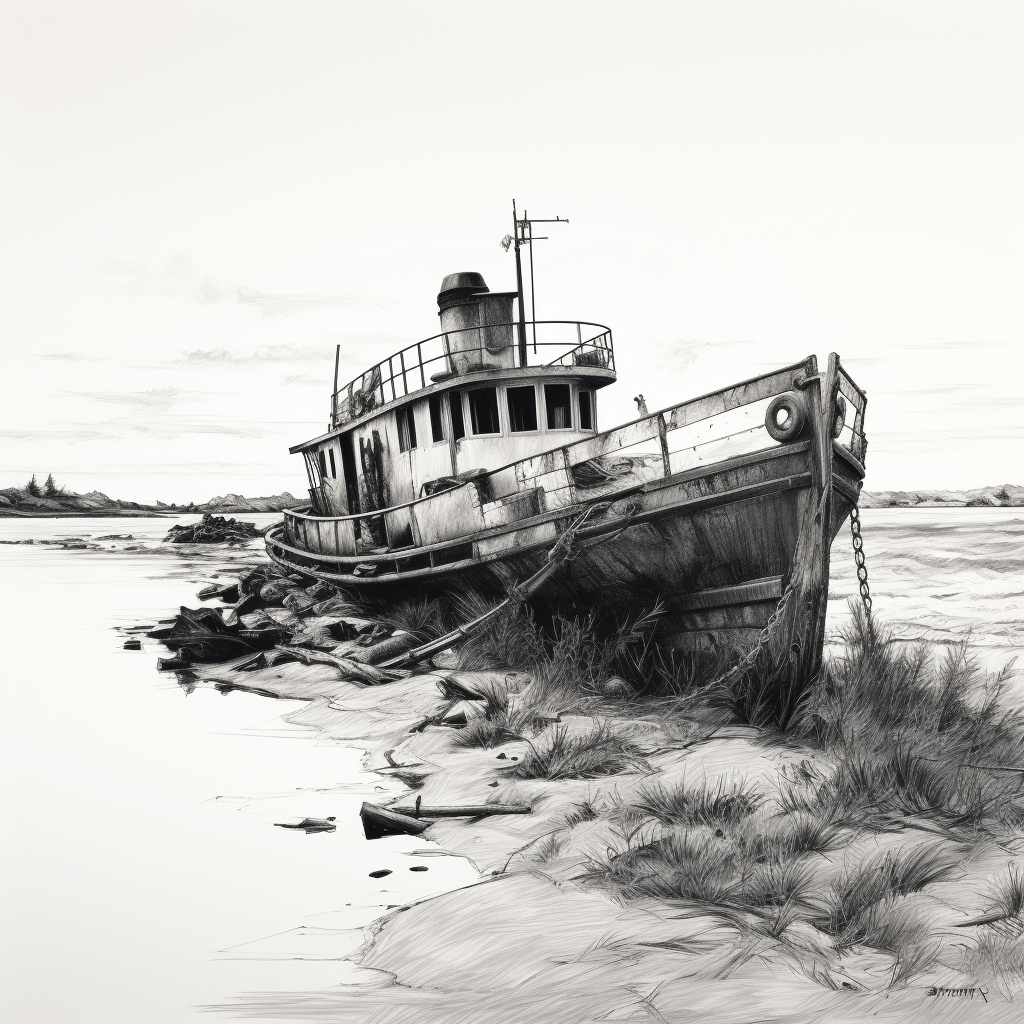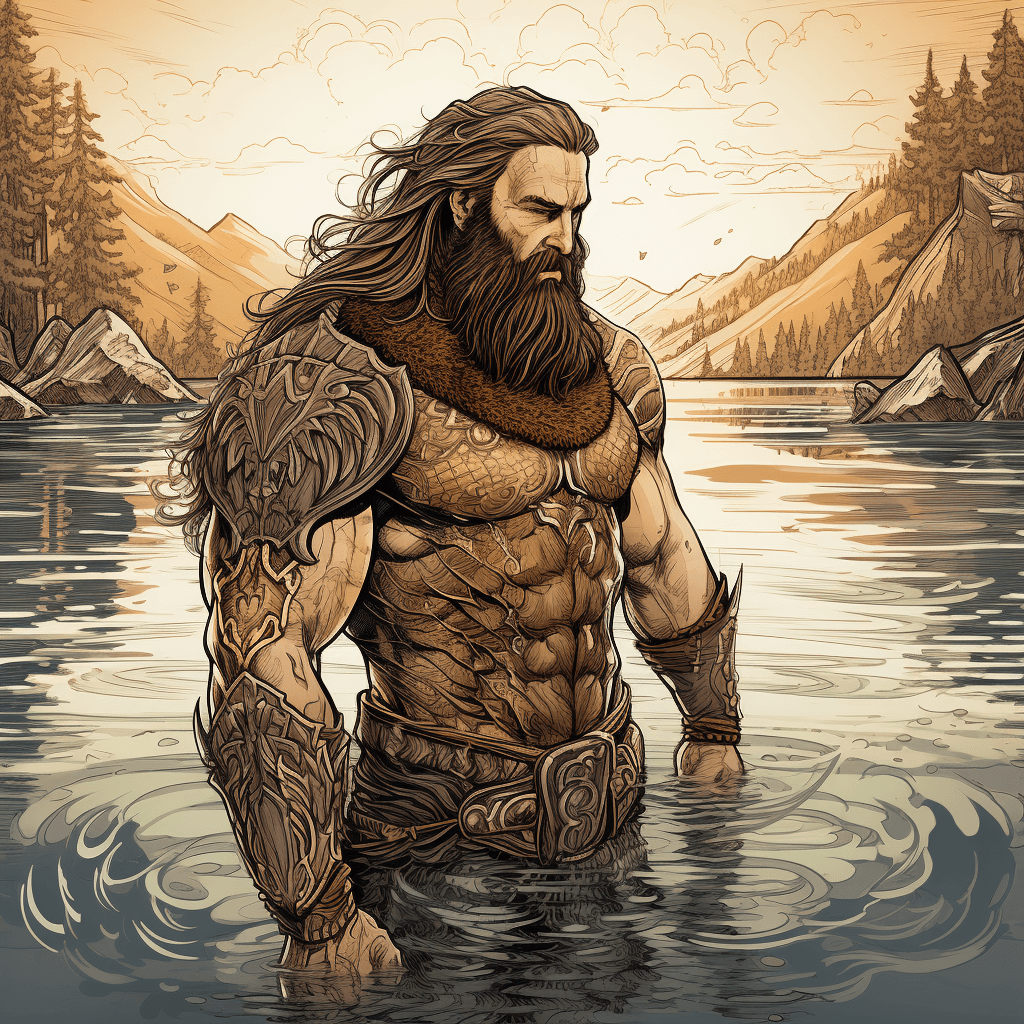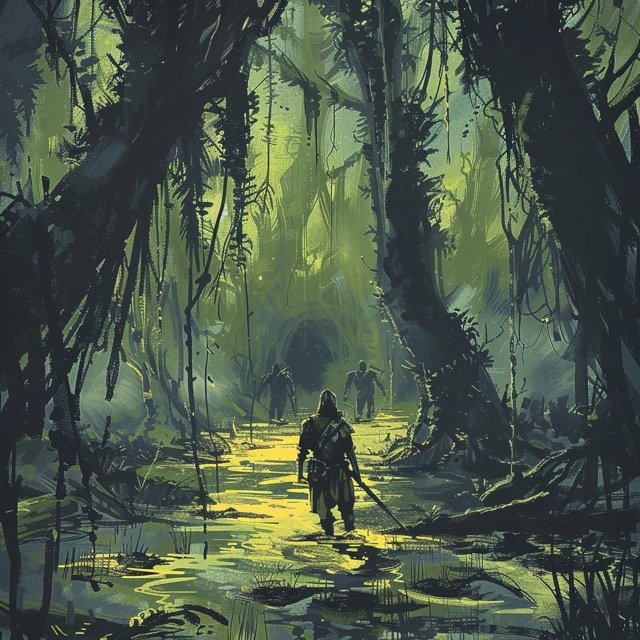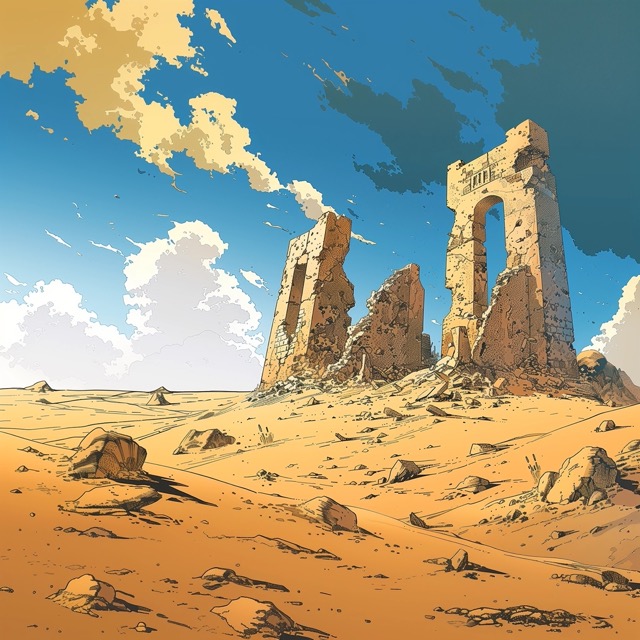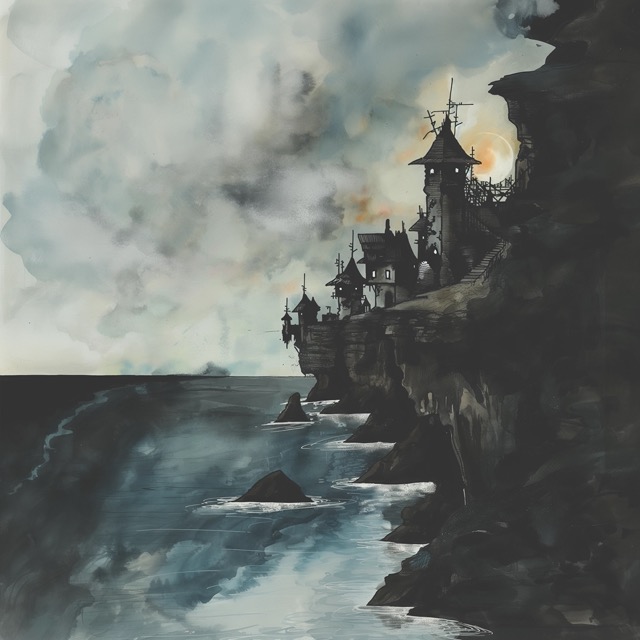The Vargjaata: The Voices of the Vicious Winds
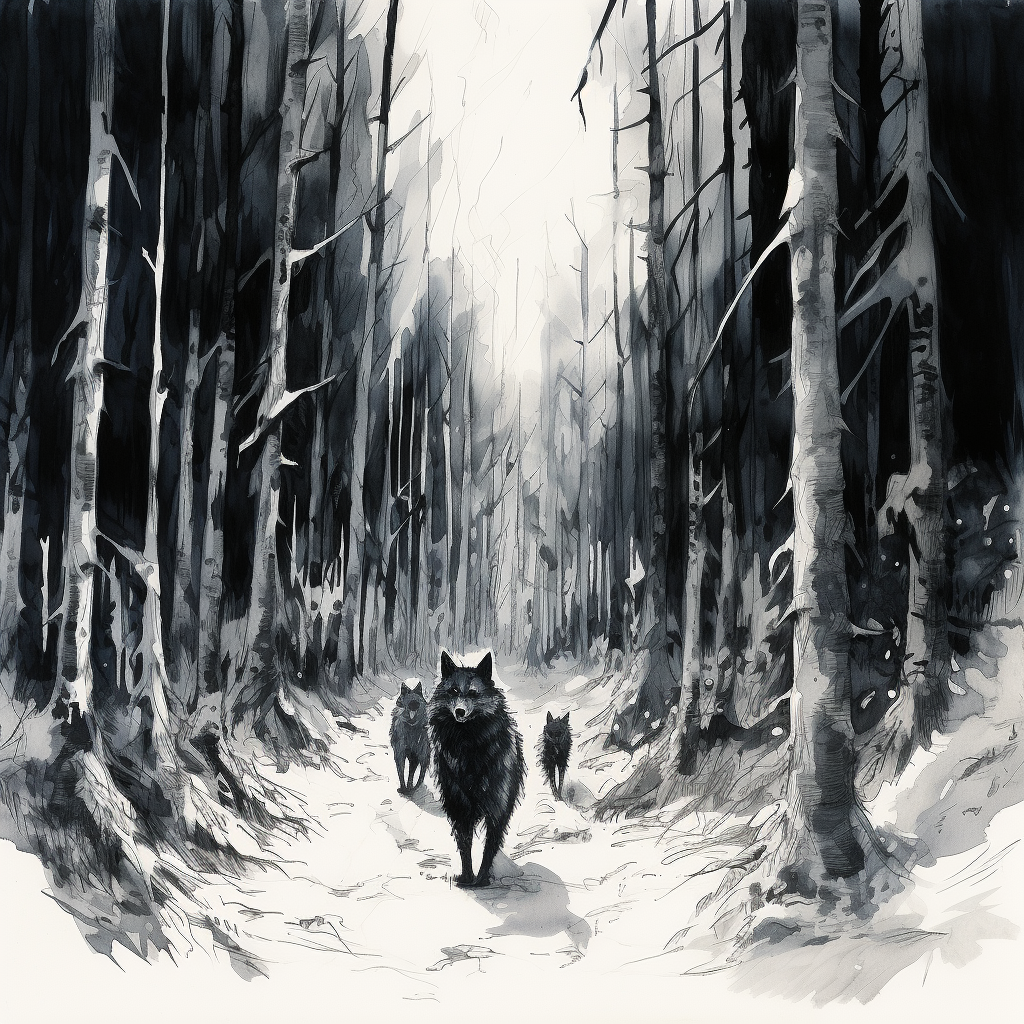
From The Pantheon Fantastical, by Silvana Rhinebeck
Silvana Rhinebeck was a Binder, Professor Emerita at the Magist Imperial University, and Imperial Magus to the Emperor. Her life’s work culminated with The Pantheon Fantastical, a rigorous encyclopedia of the Uncanny Beings of the Meridian. Although it is unfinished due to her sudden disappearance, The Pantheon Fantastical remains the foremost authority on Uncannies and is a key text for all students, scholars, and professionals engaged in the study of the Meridian.
When Ealdred Wilmarr died last year, I decided to investigate his story of the Vargjaata — those wolves of ice and snow.
Surprisingly, I could barely mention wolves at all without having a dozen stories thrown at my feet. Everyone across the north seemed to know someone who knew someone whose family member had been seduced by singing wolves who took them back to their lairs where they feasted on the human victims while performing some barbarous and macabre celebration.
There was a baffling glee to the storytelling, as if each and every person of the north attempted to outdo the previous teller in the grisly, grotesqueries. Or perhaps my translator grew weary of the stories and tried to turn my stomach.
Yet when I attempted to hire a team to take me to Asvaldr Forest, I was flatly refused. When I told them that I would go myself, they laughed. When I set out north without them, I heard singing. A haunting thrum. A tangible sensation covering my skin, trembling against my heart, my lungs.
The natives quickly filled their ears with cotton, their eyes wide and their lips thin. They looked from one to the other, ensuring, perhaps, that they had not succumbed to the song of the Vargjaata.
I pushed past them and ran for the forest, but they tackled me, pressing my face into the snow and filling my own ears with their cotton swabs.
I ripped them out and demanded they let me go, screaming. Quite undignified.
They did not.
It reminded me of that night, a decade gone, when Ealdred came to berate me about my ignorance of the North.
I have found both in my travels and in my career at the University that the surest way to have people divulge their secrets is to compliment the career of someone else present. At the merest suggestion that some colleague or academic rival is performing at the top of their field, the men in the room begin huffing and puffing and laying out their credentials like the blueprints to a grand monument that we have all, apparently, forgotten to assemble already.
Such was the case after my lecture on the Folktales of the Frozen North, wherein I cited the noted linguist Hraegal Deorwine and his ethnographic notebooks kept while studying his own people at the edges of empire, but especially those he named “The People of Rock and Ice.”
While lecturing, Professor Wilmarr was near hopping out of his seat. It was no surprise that he swept through the gathered scholars, students, and dignitaries to speak his mind on the completion of my lecture.
I told him I could meet with him an hour later at the faculty lounge.
He waited impatiently by the fire, scowling and tugging on his long greying beard. A tall, broad man who had made his name on the frontier as well as the University, Ealdred had a grasping quality to his presence, as if he feared everything would be stripped from him unless he held tightly. Incidentally, he was the handsomest man I’d ever met.
I greeted him and gestured for him to sit beside me at one of the chairs directed towards the fire. He asked if I wanted wine, and we split a bottle while he leapt into his frustration with my lecture.
“Hraegal, as anyone will tell you,” he began, his accent noticeably thicker than I’d ever heard (which I will not recreate here), “did not even speak the same language as his people of rock and ice.” He snorted, flapping his hand dismissively in the air.
“He’s native to the north.”
“The north.” He shook his head. “The reason the Empire struggles to gain footing is that term precisely. To you here in Amalcross, we are one people with a shared history and language.” He raised a finger between us. “It is not so.”
And so began a lecture on the many fractious tribes and clans of the Frozen Flame and how their stories are not mere folktales but the living and breathing world around them.
I objected and told him that the same could be said of any uncivilized people.
“Civilization,” he snorted. “Is that what you call this here, where children die in the slums?” He raised a hand, waving away my objection. “They are not stories, dear Silvana, but the knot tying all the north together.”
I bring attention to the exchange only because, much later, deep into that bottle of wine, he mentioned the Vargjaata.
“Wait, what?”
He shrugged. “You do not know of the Wolves?”
“Not ones who tell stories, dear Ealdred.”
“Sing songs,” he corrected. “Many believe they are our progenitors. Not only us of the north—though that gets contentious, depending on who you ask—but all humanity. They believe the wolves were the first inhabitants of the world and that some breakaway clan chose to walk tall on hind legs before shedding their fur and snouts. Oh, do not look at me like that, Silvana. Surely you, of all people, have heard many unusual myths attempting to explain humanity. Well, these Wolves are known to sing to those who find themselves in the Asvaldr Forest. Of course, any fools tramping through those frozen haunted trees never return alive.”
“Then where do the stories come from?”
He blinked and turned to me as if the thought never occurred to him. “They’re said to sing such beautiful haunting melodies that anyone who hears them becomes bewitched. And then they wear the skins of men and women. For, you see, they can change their skins like we may swap our wardrobes. They appear to us as beautiful men or women. Tall and silvery and powerful. Like gods.” He sighed and set his glass of wine down. “Wolves. Do you know why they have such sharp teeth?”
I watched him watch the fire, a great sorrow washing over his face. A melancholic drinker. I find that many immigrants who gain prominence in the Empire learn to long deeply for the life they left so readily behind.
He began singing then. His voice so low that I felt the melody reverberating as much as I heard it. Coating my skin, sinking into my lungs. He sang in his own language, or one of those coarse tongues of the north. When spoken, I have found them gratingly unpleasant, yet there was a powerful alliterative rhythm to his song. Though I knew none of the words, I understood the lament. A youthful infatuation. A sundering. A love lost.
A song universal to any who have known love, and even those who haven’t.
I told him, when he finished, that it was beautiful.
He grunted and said only that his sister died many years ago, lost in Asvaldr.
After being refused passage to Advaldr, my translator and I returned to our village. I railed against their cowardice and my translator said, “Ma’am, they find you quite insane. No one would ever dream of going to Asvaldr on purpose.”
“Then where do the stories come from?”
She shrugged and asked me where any stories come from.



